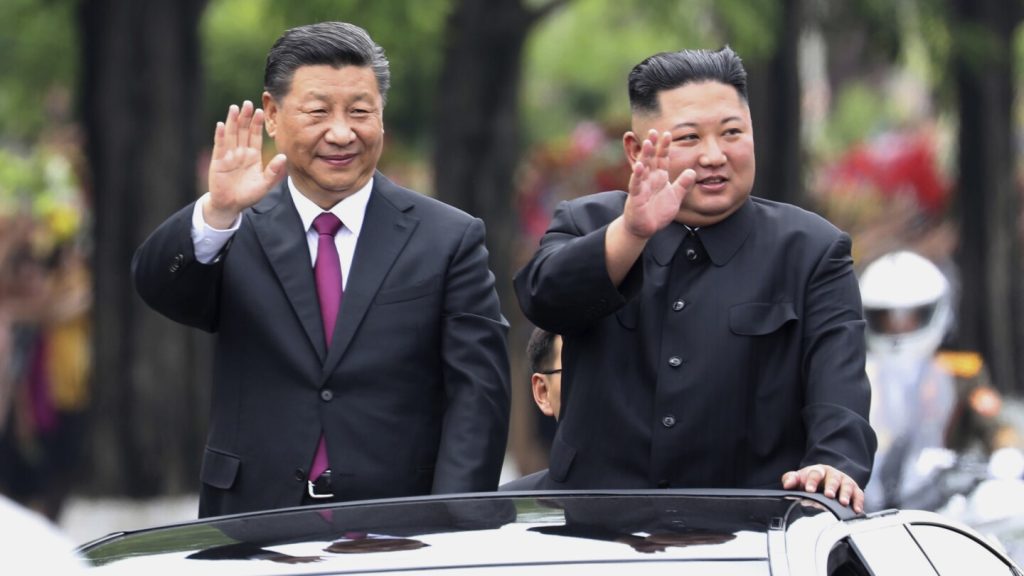In Seoul, South Korea, the leaders of North Korea and China celebrated the 75th anniversary of their diplomatic relations on Sunday. North Korean leader Kim Jong Un expressed his government’s commitment to strengthening ties with China in a message to Chinese President Xi Jinping. In response, Xi stated that China is prepared to work together with North Korea to advance their socialist causes. The relationship between North Korea and China has historically been described as close, with China being North Korea’s main trading partner and aid provider. However, there are suspicions that China may not be fully implementing UN sanctions on North Korea and could be providing clandestine aid to the country.
Despite the close relationship between North Korea and China, experts are closely monitoring their interactions and commemorative programs in the coming months to determine the status of their ties. North Korea and China established diplomatic relations in 1949 and have maintained a strong partnership since then. While some observers believe that China may be hesitant to form a three-way alliance with North Korea and Russia, others suggest that China prioritizes a stable regional security environment to address economic challenges and maintain relationships with other countries. China’s reluctance to align with North Korea and Russia as a united front could be influenced by its desire to manage its relationships with Europe and neighboring Asian nations.
In contrast to China’s relationship with North Korea, North Korea and Russia have been strengthening their cooperation in recent years. There are suspicions that North Korea may have supplied conventional weapons to Russia for its war in Ukraine, leading to increased military and economic assistance between the two countries. During a meeting in Pyongyang, Kim Jong Un and Russian President Vladimir Putin signed a pact for mutual military assistance in the event of an attack, marking a significant defense deal between the two nations since the end of the Cold War. This growing partnership between North Korea and Russia has raised concerns among outside observers about the implications for regional security in the Korean Peninsula.
Amid tensions with the US, South Korea, and their allies over its nuclear program, North Korea continues to enhance its military capabilities. Kim Jong Un recently oversaw a live artillery firing drill by cadets of a military academy, emphasizing the importance of guerrilla warfare tactics in countering security threats. North Korea’s advancements in both nuclear and conventional weapons capabilities have been attributed to the perceived threats posed by the US-led security environment. As North Korea engages in military drills and strengthens its defenses, the international community remains vigilant about the potential implications for regional security and stability.
As North Korea navigates its complex relationships with China, Russia, and other countries, the actions and statements of its leaders will be closely watched for signs of shifting alliances or policies. The evolving dynamics between North Korea and its allies could have far-reaching implications for regional security and stability in East Asia. With ongoing tensions surrounding North Korea’s nuclear program and military activities, the international community is closely monitoring developments in the region and assessing the potential impact on global security. The diplomatic relations between North Korea, China, and Russia will continue to be a focal point of scrutiny as key players in the region navigate geopolitical challenges and opportunities.


